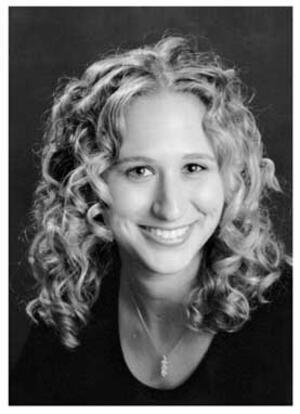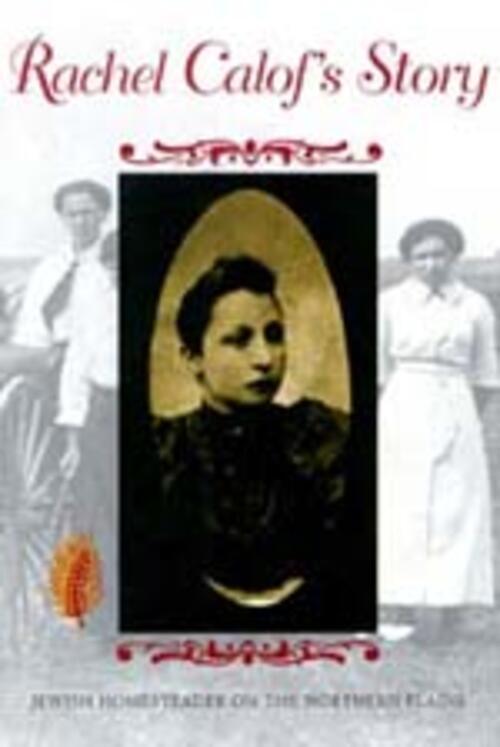Ladies and Gentleman, and—considering this is Yom Kippur eve, I know you will permit me to say—friends, brothers and sisters; for surely to-night is one of the most solemn and sacred periods in the lives of Israelites, for to-night, at least, we must be brother and sister in letter and spirit. My position this evening is a novel one. From time immemorial the Jewish woman has remained in the background of history, quite content to let the fathers and brothers be the principals in a picture wherein she shone only by a reflected light. And it is well that it has been so; for while she has let the stronger ones do battle for her throughout centuries of darkness and opposition, she has gathered strength and courage to come forward in an age of progressive enlightenment and do battle for herself if necessary, or prove by being a noble helpmeet how truly she appreciates the love which shielded her past.
I can scarcely tell you how much I feel the honor you have this evening conferred upon me in asking me to address you. For a woman to be at any time asked to give counsel to my people would be a mark of esteem; but on this night of nights, on Yom Kippur eve, to be requested to talk to you, to advise you, to think that perhaps I am to-night the one Jewish woman in the world, mayhap the first since the time of the prophets to be called on to speak to such an audience as I now see before me, is indeed a great honor, an event in my life which I can never forget…
I have been requested to speak to you concerning the formation of a permanent congregation. On Rosh Hashana I was surprised to find such a large number of you assembled here for worship, and at that time the idea of a permanent congregation first occurred to me. Mentioning the matter to some of the prominent Jewish gentlemen of Spokane, I was informed that the number of Hebrews and their financial standing was sufficient to warrant an established congregation. “Then,” said I, “how is it you are content to go on this way having neither schule nor a Sabbath School? Do you think you are doing right towards yourselves, towards your children who are growing up without a creed of any kind, a most dangerous thing for society and a most ungrateful way of paying tribute to God.” I was answered that such a difference of opinion existed among you, so many were prejudiced against reform, the remainder stubborn for orthodoxy, that it would be a hopeless task to organize a permanent congregation. Think of it, ye Israelites, the “chosen of the earth,” so divided as to how you will worship Jehovah that ye forget to worship at all! You who have received divine protection through centuries of danger and oppression, you whom the prophets say are to survive for the grandest destiny of man, you to whom has been vouchsafed every blessing,—because you cannot agree as how you will do this or that, how you will say thank you, Almighty, therefore you do not say it at all. O, you intend saying it all in good time! There may be repentance at the eleventh hour, but who can say which hour may not be the eleventh one? This is the time for action—right now, and our solemn Yom Kippur is the right now of our existence.
Now is a most excellent time for you to consider the question. It is the time for you to decide whether you will effect a permanent organization or whether you will continue to go on and hold only one or two services a year. There are here, I know, certain disagreements as to the form of worship, whether we should cling to the old orthodox style or take up the reform that has gradually been instituted in the Jewish church. This is a progressive age, and some of the customs of two or three thousand years ago will not do for to-day, and at the same time many customs which were good then are just as good now, and can be just as appropriately used. It would be well for you to throw aside all little disagreements and unite in the one cause—that of upholding the creed of our religion…
Whatever you do for religion, or whatever you give, must be voluntary and sincere. Coming here because your neighbor does is not religion; neither is it religion to give a certain amount because some one else has done the same. True religion is true repentance for our many sins and mistakes.
…You have always said that in union there is strength, therefore it is necessary that you should unite, giving help to each other through the creed you all believe in. Drop all dissension about whether you should take off your hats during the service and other unimportant ceremonials, and join hands in one glorious cause. We are all Israelites, and anxious to help one another. Look up to our creed and live up to it. It is not necessary to build a magnificent synagogue at once; that can be done in time. The grandest temples we have ever had or the world has ever known were those which had the blue sky for a roof, and the grandest psalms ever sung were those rendered under the blue vaults of heaven…
Form yourselves into a permanent congregation as soon as possible, and organize a Sabbath school. Unless one is established soon your children will grow up without any creed at all. One must believe in something, and one must have faith in something or become a menace to society. Keep one day holy, and teach your children to do the same. It isn’t good for you to do as you are doing. We are no longer a nation of people, although we are often spoken of as such. We have no ruler, but are simply citizens of the country we live in. We are loyal to the civil rule that governs us, and we should be loyal to the religious rule that we all bow to.
Friends, I thank you for the patience with which you have listened to me, and in the name of all we Hebrews hold most dear, I ask you to be patient with each other. Drop all personal feeling in this matter, and meet each other half way over your differences; give each other a hearty handshake for the sake of the cause, and I prophesy Heaven will crown your efforts with peace and prosperity.
From to-night on resolve to be something.
Transcript of Ray Frank, “A Lay Sermon by a Young Lady.” American Hebrew, October 1890.




